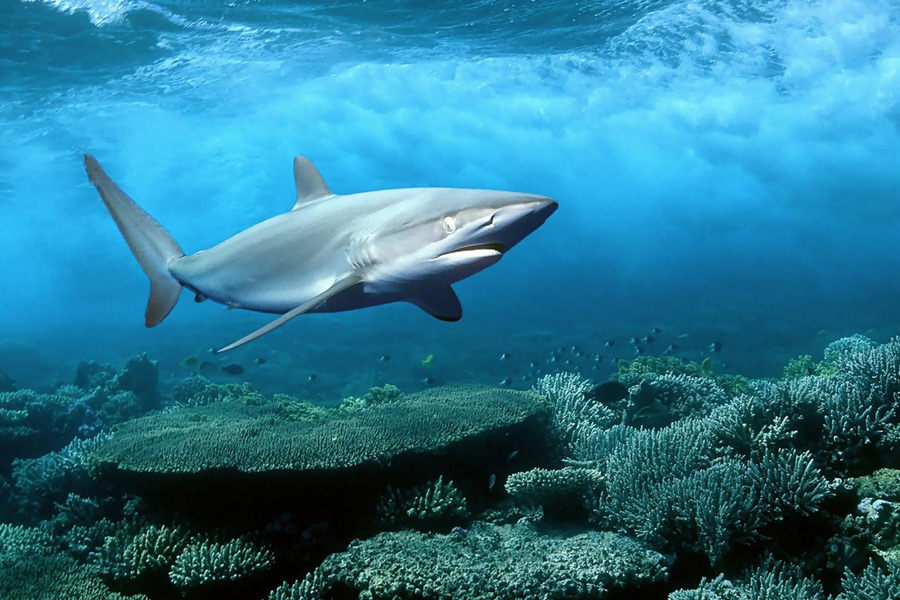Human beings have 2 sets of teeth, also called dentitions. They are referred to as deciduous teeth (primary, baby or milk teeth) and permanent teeth (or adult teeth). Deciduous teeth in humans start coming out 6 to 10 months after birth, and they are eventually replaced by permanent teeth years later, usually starting around the age of 6.
Humans and all animals that have 2 consecutive sets of teeth are called diphyodont. In contrast, polyphyodont are animals who’s teeth are replaced many times. Most mammals are diphyodont, except kangaroos, elephants and manatees.
Among polyphyodont animals, for example, sharks grow a new set of teeth almost every two weeks because their teeth get worn fast and they need to be replaced. Also young and teenage crocodiles have their teeth changed with larger ones every month for reasons similar to the ones of the sharks, but this rate slows down for adult crocodiles.
Many other species of fish and reptiles are polyphyodonts. This phenomena, especially in crocodiles, is presently studied in order to research possible tooth generation in humans.
Links
- 10 things you didn’t know about teeth, Studio Dentaire;
- Diphyodont, Wikipedia;
- Polyphyodont, Wikipedia.
